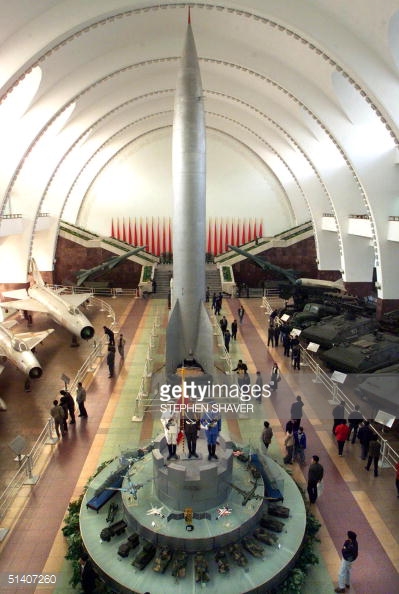Cyberwarfare is an increasing risk in 2017, as state actors develop and deploy sophisticated cyber capabilities that threaten critical infrastructure and assets such as power, water, financial, information, military, and command and control networks. Over a billion user accounts and highly confidential personal records have been compromised in the past several years. Critical country infrastructure has been commandeered, for example in Iran, North Korea, Estonia, and Ukraine. Boston Global Forum (BGF) has taken note of these developing issues and has made preventing cyberwarfare a focus of its attention in 2017. BGF will develop the BGF -G7 Summit Initiative to support the Italian government, host of the 2017 G7 Summit, May 26-27 in Sicily.

BEIJING, CHINA: Beijingers pose for pictures in front tanks, jets and of one of China’s first nuclear missles, the Dong Feng 1, as they visit the Military Museum 03 November 1999, which showcases the country’s military achievements and weapons. Despite China’s aggressive development of its nuclear capabilities, a more potentially more efficient and lethal threat to Taiwan and the region is the development of its electronic warfare capabilities, including satellite communications and reconnaissance expertise, as well as an electronic magnetic pulse and cyber-war computer hackers. STEPHEN SHAVER/AFP/Getty Images
Preventing cyberwarfare will require full-spectrum operations and an all-of-government approach across international organizations, and states that in the past, or on other issues, may be in competition. Diplomats will seek to make agreements that prevent cyber arms races, minor tit-for-tat strikes, and brinkmanship that could spiral out of control. Offensive cyber preparations need to be curtailed through mutually-beneficial international agreements. All government and industry sectors need to robustly increase defensive cyber capabilities.
As cyber technology develops, the risk of major power shifts in the international system will increase, all else equal. International parties need to be cognizant of the possibility of such power shifts, and take diplomatic and other measures to smooth international relations in what may be a dangerous period of transition. Preventing cyberwarfare will be a critical endeavor in 2017, and should lay the groundwork for decades of peace in the future. Boston Global Forum is at the forefront of analysis of cyberwarfare, and in 2017 will bring critical insights to its prevention and the maintenance of peace in cyberspace.